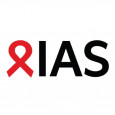IAS – the International AIDS Society – is concerned that proposed reforms to the US President’s Emergency Plan for AIDS Relief (PEPFAR) come at the expense of its greatest strength – its high-level position within the administration and efforts in the HIV response. We urge the US government to build on PEPFAR’s success strategies in responding to present and future pandemics.
The US government has unveiled a plan to set up a new health bureau to consolidate responses to HIV, COVID-19, mpox and future pandemics. PEPFAR is one of the most successful US foreign aid investments, with funding of USD 110 billion to date. It supports 65 million people with HIV treatment and testing services and provides more than 20 million people living with HIV with antiretroviral therapy.
In a new Journal of the International AIDS Society (JIAS) viewpoint, “Failing to learn the lessons: the U.S. response on global health security ignores 20 years of PEPFAR”, Brian Honermann (amfAR), Emily Bass (independent scholar) and Greg Millett (amfAR) warn that the proposal “fails to ensure the core components of PEPFAR’s success are protected for the AIDS response and extended to other endeavours … There is time to revise the proposed approach, building on and preserving these core strengths.” The components are consolidated leadership, clear accountability and adequate resources.
“In other words: learn from PEPFAR lest we lose time in preparing for the next pandemic.”
IAS Governing Council member Mitchell Warren pointed out that the best way to prepare for future pandemics and build sustainable health systems is to address current ones. “More than 20 years of investment in PEPFAR and the Global Fund has laid the foundation for the global response to COVID-19, including surveillance, laboratory capacity and vaccine delivery,” he said.
In that time, PEPFAR built local health capacity, strengthened national public health institutions, supply chains, surveillance, laboratory, and monitoring and evaluation systems, and trained almost 340,000 healthcare and community workers – all of which were leveraged in national responses to COVID-19.
“There is tremendous logic and opportunity to leverage, expand and enhance PEPFAR’s solid foundation,” he said. “In doing so, though, it is essential to protect PEPFAR’s primary mandate to end the HIV pandemic while elevating PEPFAR to play a key and coordinating role within the Department of State for pandemic preparedness, prevention and response.”
The PEPFAR platform must reach those who remain in need of essential HIV prevention and treatment services while leveraging additional US government investments to strengthen health systems that can respond to new disease threats.
The IAS urges the US government to rethink its approach to reorganizing its global health functions, using what it has learnt from PEPFAR towards an effective, coordinated response to global health and a world in which HIV no longer presents a threat to public health and individual well-being.








Comments
Comments